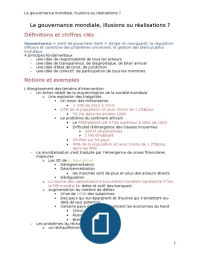Political party
- Institution
- Seeks to influence the state
- Capable of presenting candidates in elections
Purpose is organising and representing interests (cleavages). Provide a vertical
linkage between governments, parliament, policy and citizens
Democracy
Democracy isn’t possible without parties. Types of democracy dependent on type
of parties
- Parties provide information for the people
- Parties are mediators
Cadre parties
- Elitest
- Used to be formed in government
- Almost no civil link
- Low level of ideology
- Tried to represent national interests
Mass parties
- Christian& social democrats
- Strong ideology
- Membership financed party
- Centralized organisation
- High amount of linkage
- Local organisations
Catchall parties
- Reduction of ideology
- Lager umbrella parties
- Trying to catch as many different groups as possible
- Subsidies of state
- Personalised leadership
Cartel party
- State funding
- Decreasing relationship with members
- Ideology less of an role
- Parties become more part of the state
- Cartel parties are working together to remain in power
Liberals
- Origin cadre parties
- Individual right
- Freedom
- Markt economy
, - Autonomy
Conservative
- Origins cadre party
- Tradition, hierarchy
- Cultural critiques
Neo conservatism
- Thatcher
- Anti Keynesian
- Open market economy
- Critiques culture
- Welfare state is dangerous
Christian democrats
- Christian values
- Market economy
- Centrist
- Opposition class conflict
- Social market
- Family
Socialist
- Reformists
- State regulation
- Social programs
- Reform capitalism
- Post war compromise
Communists
- Utopians
- Marxism
- Anti-system
- Abolishment of capitalism
- State unnecessary
Post war compromise
- Accepting liberal democratic state
- Accepting principles of market economy
- Labour rights
- Social rights
- Regulation
Social democrats
- Origin: socialists
- Keynesian economics
- Regulation capital
- Nationalisering
- Working rights
- Institution
- Seeks to influence the state
- Capable of presenting candidates in elections
Purpose is organising and representing interests (cleavages). Provide a vertical
linkage between governments, parliament, policy and citizens
Democracy
Democracy isn’t possible without parties. Types of democracy dependent on type
of parties
- Parties provide information for the people
- Parties are mediators
Cadre parties
- Elitest
- Used to be formed in government
- Almost no civil link
- Low level of ideology
- Tried to represent national interests
Mass parties
- Christian& social democrats
- Strong ideology
- Membership financed party
- Centralized organisation
- High amount of linkage
- Local organisations
Catchall parties
- Reduction of ideology
- Lager umbrella parties
- Trying to catch as many different groups as possible
- Subsidies of state
- Personalised leadership
Cartel party
- State funding
- Decreasing relationship with members
- Ideology less of an role
- Parties become more part of the state
- Cartel parties are working together to remain in power
Liberals
- Origin cadre parties
- Individual right
- Freedom
- Markt economy
, - Autonomy
Conservative
- Origins cadre party
- Tradition, hierarchy
- Cultural critiques
Neo conservatism
- Thatcher
- Anti Keynesian
- Open market economy
- Critiques culture
- Welfare state is dangerous
Christian democrats
- Christian values
- Market economy
- Centrist
- Opposition class conflict
- Social market
- Family
Socialist
- Reformists
- State regulation
- Social programs
- Reform capitalism
- Post war compromise
Communists
- Utopians
- Marxism
- Anti-system
- Abolishment of capitalism
- State unnecessary
Post war compromise
- Accepting liberal democratic state
- Accepting principles of market economy
- Labour rights
- Social rights
- Regulation
Social democrats
- Origin: socialists
- Keynesian economics
- Regulation capital
- Nationalisering
- Working rights











